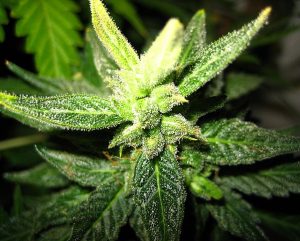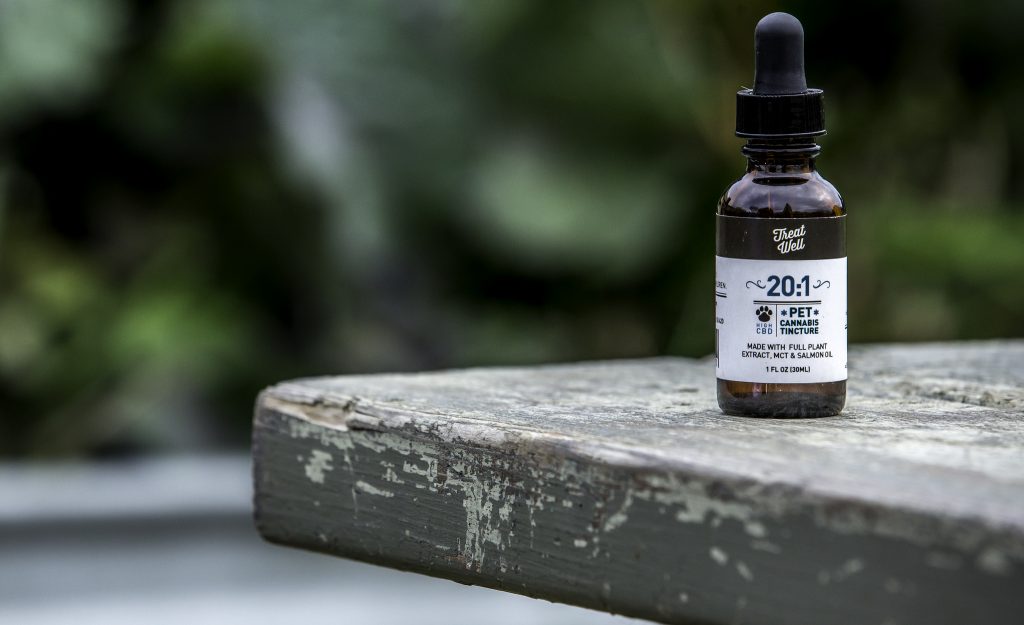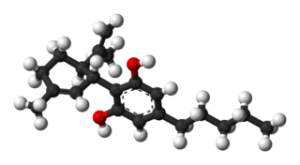Cannabis-derived compound CBD reduces anxiety and may also help with depression and protect neurons from degeneration.

- Reduced anxiety. Improvement of anxiety, particularly in people with anxiety disorders, is the main research-backed benefit of CBD.
- Neuroprotection. Early research indicates that CBD helps protect neurons from Alzheimer’s and other neurodegenerative conditions.
- Improved mood. Animal research suggests that CBD can also function as an antidepressant.
Overview
Cannabidiol or simply CBD is a compound found in cannabis that has multiple medicinal properties. Unlike tetrahydrocannabinol (THC) – another cannabinoid and the main psychoactive ingredient in cannabis – CBD has no euphoric or mind-altering effects. Furthermore, CBD provides health benefits which include reduction of anxiety, pain, inflammation, and depression.
It is these health benefits – which come without the intoxicating and anxiety-inducing effects of THC – that have led to the ever-growing popularity of CBD supplements. Just some of the conditions CBD is used for are:
- Arthritis
- Chronic pain
- Multiple sclerosis
- Depression & anxiety
- Epilepsy, Alzheimer’s, and other neurological disorders
Given that most of these uses are associated with brain function, it’s not surprising that CBD is also becoming a popular nootropic, particularly for improving anxiety & well-being.

How CBD Might Help the Brain

Interacting with serotonin receptors
Research suggests that CBD’s anxiety and depression-reducing effects are mainly tied to its interaction with the serotonin 5-HT1A receptor, which plays a role in regulating mood, stress, and emotional responses. 1
Stimulating adult neurogenesis
Multiple cell culture studies have demonstrated that CBD increases adult hippocampal neurogenesis, the primary way that an adult mammalian brain can grow new brain cells. The impairment of adult neurogenesis has been linked to the development of anxiety, depression, and a number of neurodegenerative disorders. 2
Antioxidant activity
CBD is a potent antioxidant, meaning that it helps protect cells from oxidative stress involved in the development of numerous disorders. In a nootropic context, CBD’s antioxidant activity helps protect the brain from neurodegeneration as seen in Alzheimer’s, Parkinson’s, and related conditions.
CBD’s Nootropic Uses & Benefits
As a nootropic, CBD is typically taken to lower anxiety and improve mood. Current research findings are strongly supportive of CBD’s use in anxiety disorders, with a 2015 review paper summarizing that: “evidence from human studies strongly supports the potential for CBD as a treatment for anxiety disorders.” 3
Meanwhile, the use of CBD for depression is backed by multiple animal studies. Moreover, emerging research suggests that CBD may also be a novel way to help with Alzheimer’s, Parkinson’s, and other neurodegenerative conditions.
Research
Animal Research
CBD’s effects on the brain have been extensively researched in animal and cell culture studies. Findings indicate that CBD may:
- Reduce anxiety and depression in mice and rats4 5
- Ameliorate Alzheimer’s, possibly through modulating the function of microglia cells6 7
- Help with Parkinson’s through antioxidant activity8
Human Research
Current clinical research suggests that CBD is an effective way to reduce anxiety.
CBD (600 mg) seems to reduce anxiety in individuals with social anxiety disorder
This double-blind, randomized study examined the effects of CBD on anxiety. A total of 24 people with Social Anxiety Disorder (SAD) were given placebo or CBD (600 mg) 90 minutes before a simulated public speaking test (SPST). The CBD treatment significantly lowered anxiety, cognitive impairment, and overall discomfort during the test. In addition, the performance of the CBD group was noted to be similar to 12 healthy controls (HC) who also underwent the test.
- The researchers concluded that “The increase in anxiety induced by the SPST on subjects with SAD was reduced with the use of CBD, resulting in a similar response as the HC.”9
CBD seems to reduce the anxiety and subjective effects produced by THC
This early double-blind study tested whether CBD was capable of reducing the anxiety produced by tetrahydrocannabinol (THC), the main psychoactive compound in cannabis. A total of 8 people received the following treatments in different order: 0.5 mg/kg THC, 1 mg/kg CBD, a mixture containing 0.5 mg/kg delta 9-THC and 1 mg/kg CBD, diazepam, a common anti-anxiety drug (10 mg), and placebo. CBD was found to counteract the anxiety produced by THC, as well as many of its subjective effects such as a feeling of drowsiness.
- The researchers concluded that “the effects of CBD, as opposed to those of delta 9-THC, might be involved in the antagonism of effects between the two cannabinoids.”10
CBD (400 mg) appears to reduce anxiety in SAD
In this double-blind study, people with social anxiety disorder (SAD) were given placebo or CBD (400 mg) and were examined using brain imaging. Compared to placebo, CBD was found to significantly decrease subjective anxiety, an effect the researchers attributed to changes in regional brain activity.
- The researchers concluded that “CBD reduces anxiety in SAD and that this is related to its effects on activity in limbic and paralimbic brain areas.” 11
Nootropic Dosage
- Clinical studies have used CBD doses as high as 900 mg, but not enough research has been done to suggest a standard dose
- CBD supplements typically provide 15 – 25 mg dosages of CBD, taken as as CBD hemp oil or CBD extract capsules
- The vast majority of CBD supplements are made from CBD-rich hemp, meaning that it does not contain enough THC to cause any psychoactive effects
Available Forms
- CBD oil. The most popular form of CBD, oil tinctures offer ease of use alongside long duration and fast onset.
- CBD capsules/edibles. Although convenient and long-lasting, capsules and edibles have lower efficacy because of low bioavailability.
- CBD vape oil. Vaping CBD provides the fastest relief and strong effects, but has the shortest duration.
- Topical CBD. Topical CBD is applied to the skin as a cream, balm, or ointment, which is an effective option for arthritis and other types of musculoskeletal pain.
- CBD Isolate. 99%+ pure CBD in crystal/powder form.
Supplements in Review Says
- CBD oil 15+ mg as a nootropic.
CBD is quickly emerging as an effective supplement for anxiety and depression. CBD has exploded in popularity as a way to gain the health benefits of cannabis without the intoxicating high. Given the positive research findings, we recommend CBD as a way to help with anxiety and depression.
There is too little research to recommend a dose. Because there isn’t enough research to suggest a dosage, it’s best to follow supplement recommendations. Most CBD supplements suggest dosages of 15 – 25 mg, which can be carefully raised over time to achieve the desired effect.
We just discovered the CBD tablets ease agitation and wandering in our 92 year old mother with Alzheimers, who lives with us! Thank you BioCBD water soluble products. – Jean
It’s really a shame that in the U.S. hemp got grouped together with marijuana decades ago when the big crack down on marijuana came about. Fortunately things have been slowly turning around and hemp, and the CBD that derives from it, have been legalized in many (but not all) states. Hemp has almost no THC, so it isn’t something people even used to get high from anyway. See http://greenuva.com for more details.